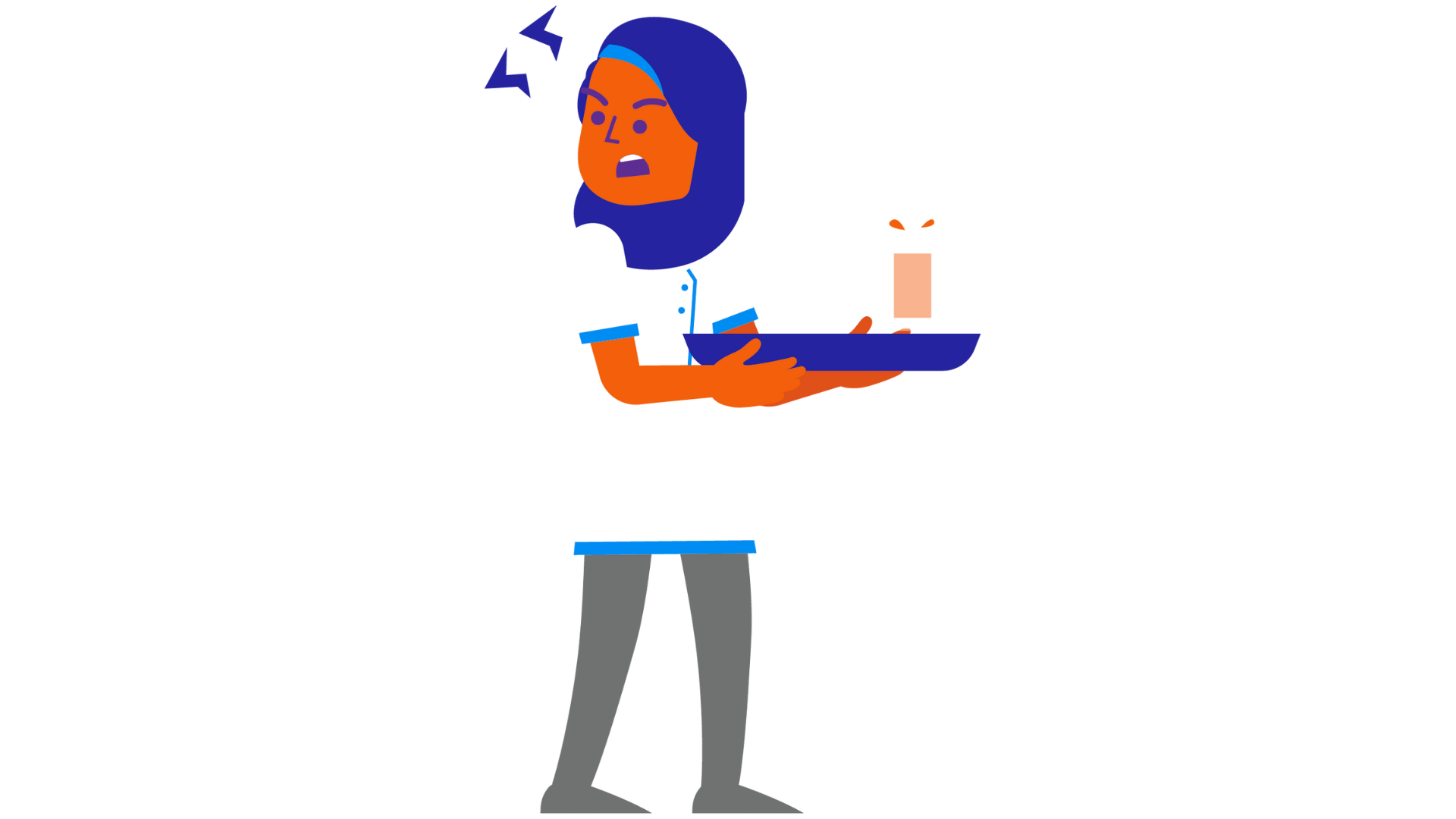.avif)
Was on
-
Work
5
June
2024
5 min reading time
Dealing with stress: 7 helpful tips
Stress is a common problem. Especially among temporary workers. Changing workplaces, irregular hours and the uncertainty of temporary contracts can all contribute to long-term stress.
Sign upSign up for the waiting listStay informedWhat are stress symptoms?
How do you recognize if you have stress? Stress often occurs because you are too busy with work or have a chaotic personal life. Ignoring stress symptoms is dangerous. But it is also often very difficult to recognize when exactly you are stressed and whether the symptoms you are having fit with stress, or if they are due to something else.
Stress can result in all kinds of symptoms. Such as headaches, joint pain and neck pain. Insomnia is also a result of stress and can only make your symptoms worse.
Stress can also affect your immune system, making you sick more often. This is because stress causes changes in your circulatory system, your heart and your breathing. And this, in turn, affects your immune system.
7 helpful tips to get rid of stress
1. Organize your workday
Making a good schedule at the beginning of the week or the beginning of your workday can relieve a lot of stress. For example, by making a to-do list of your most important tasks. Try to organize your workday as well as possible and set achievable goals. Ticking off tasks gives you a sense of satisfaction and control.
2. Take regular breaks
It is important to take short breaks from time to time during your workday. And then not thinking about work for a while. Just a few minutes away from your workplace. To refresh your brain and lower your stress level. A short daily walk can help you quite a bit.
3. Talk about your concerns
If you find that you suffer too much stress, it is important to talk about it. For example, seek support from a colleague, from friends or family, or talk about it with your boss. Sometimes sharing your concerns can make a big difference. In addition, you can always consider seeking professional help, such as a coach or counselor.
Especially for temporary workers, for example, there is "Less stress, more energy. A program specially designed for temporary workers to get rid of their stress. By means of a personal coach and an app.
4. Ensure a healthy lifestyle
A healthy lifestyle helps you cope better with stress. Good nutrition, adequate sleep and regular exercise are especially helpful. Try to schedule a few minutes daily for these activities. For example; just before you go to work or after work.
5. Relaxation techniques
Relaxation techniques such as yoga or breathing exercises can be helpful in reducing stress.
Relaxation techniques are also covered during the "Less Stress, More Energy" track.
6. Set limits on your work.
It is important to set clear boundaries between work and personal life. Indicate this to your client as well. Try to avoid overtime as much as possible and discuss with your boss when something becomes too much for you. Try not to be constantly occupied with work when you are at home. Provide time to relax and do things you enjoy. This will help you let go of work better and prevent stress from affecting your whole life.
7. Look for development opportunities
Working hard but not moving forward in your personal development is also a major cause of stress. So putting yourself first. Therefore, one of the ways to reduce stress is by continuing to develop yourself. Learning new skills and expanding your knowledge can increase your self-confidence and improve your position on the job market. Consider taking courses or training that interest you and can help you move forward.
Are you looking for compensation for your training, take a look at our Scholingsvouchers, the Ontwikkelbudget or the Kansberoepbudget. Reimbursements of up to €2500 for the development of temporary workers.
What is Less stress, more energy?
Less stress, more energy is a 6-week training course from Lesstress for temporary workers. You follow this training together with a personal coach. Weekly there is a video call to discuss the results. Questions can also be answered. An app is used to do the daily stress measurement. Per day, the program will only cost you 15 minutes.
Sign up for free
Stay informed
Stay informed
Getting Started
Ready to work on yourself, your future or your job prospects?
Find out within 1 minute which budget is best for you.

Grow in your work and increase your job opportunities.







.avif)





